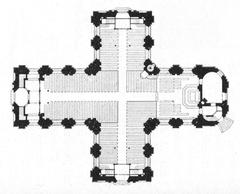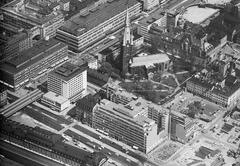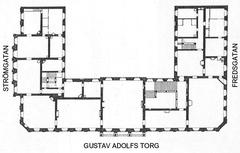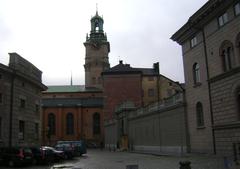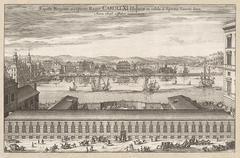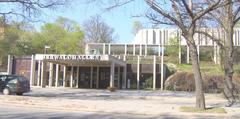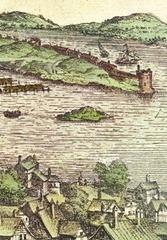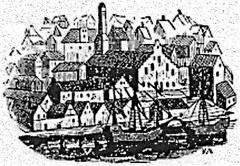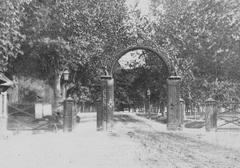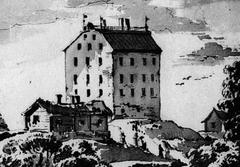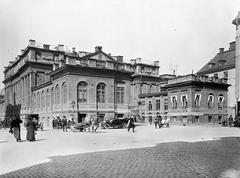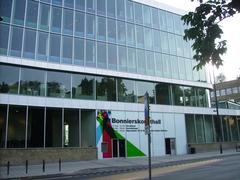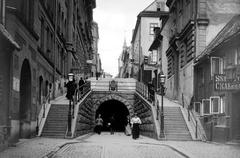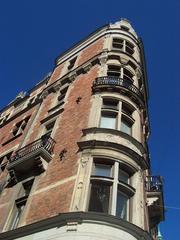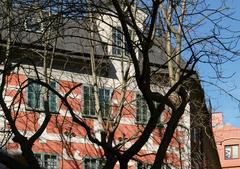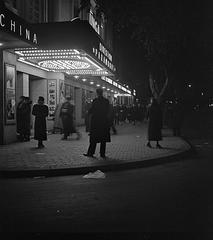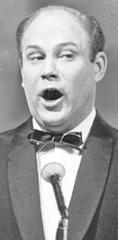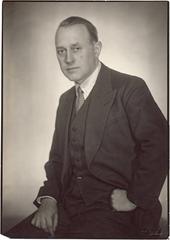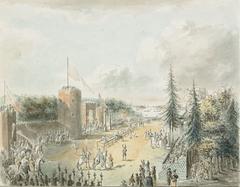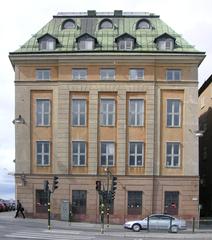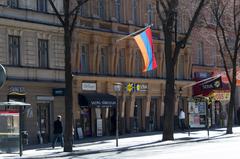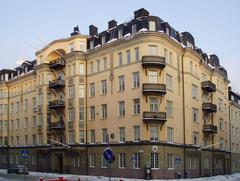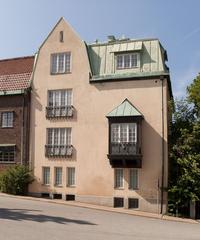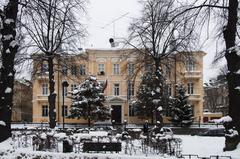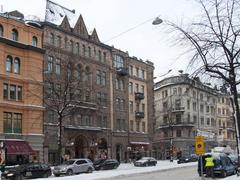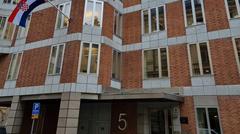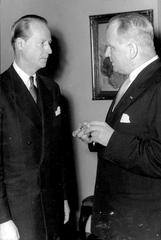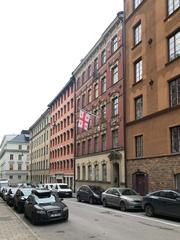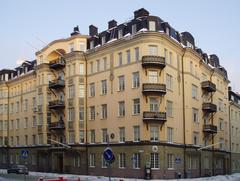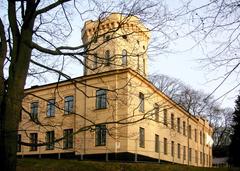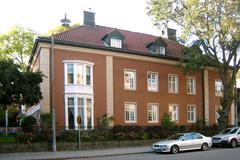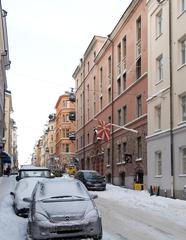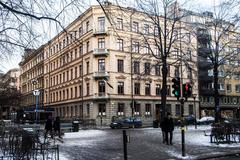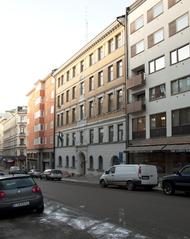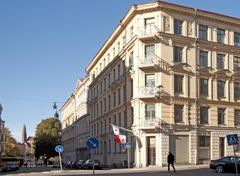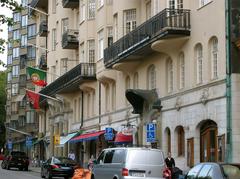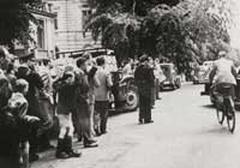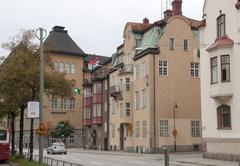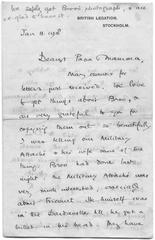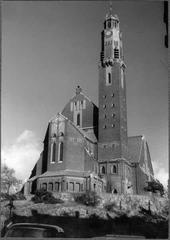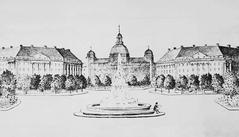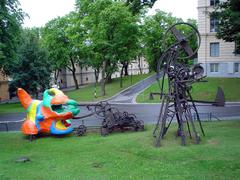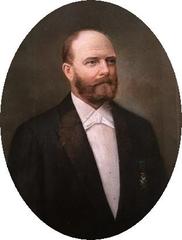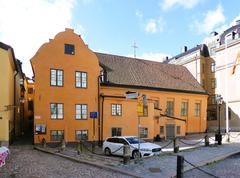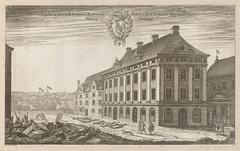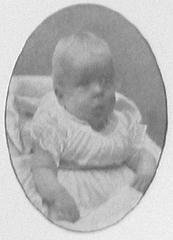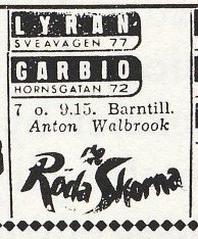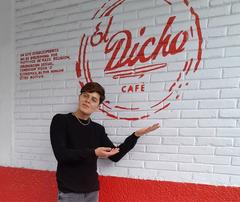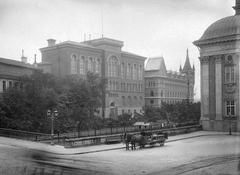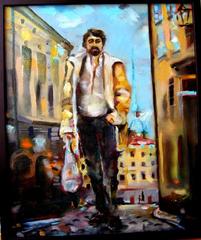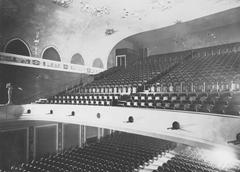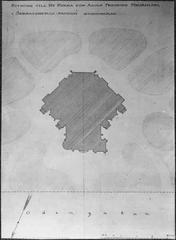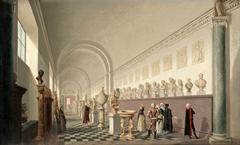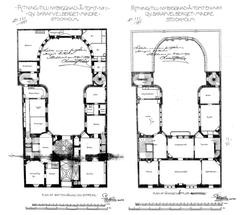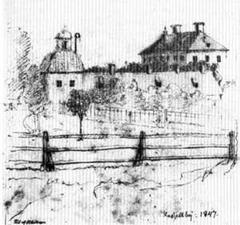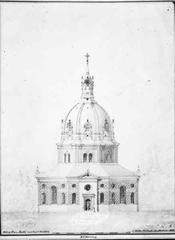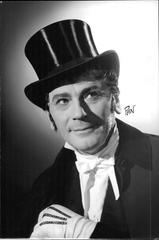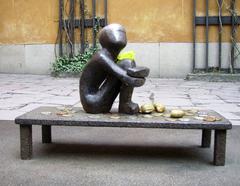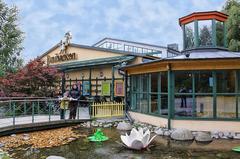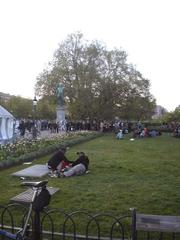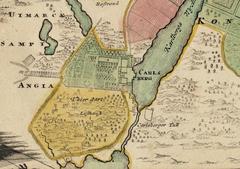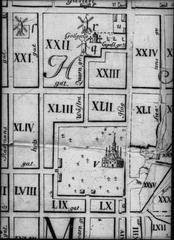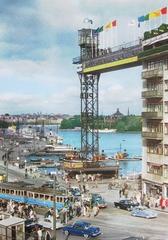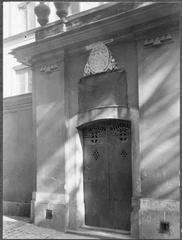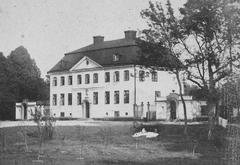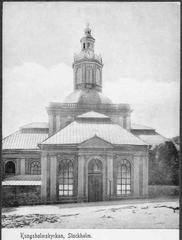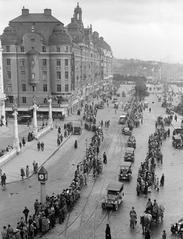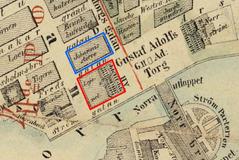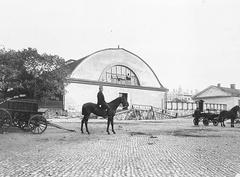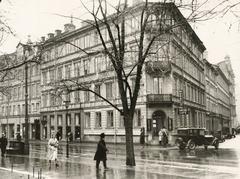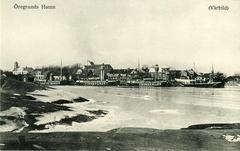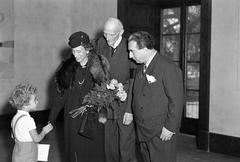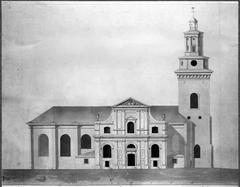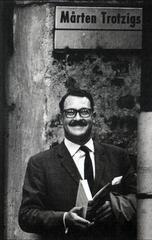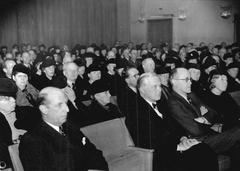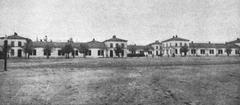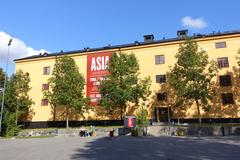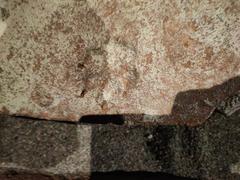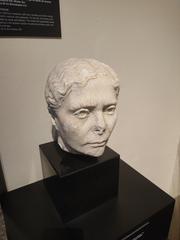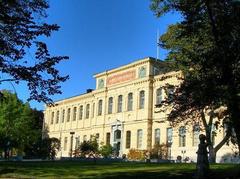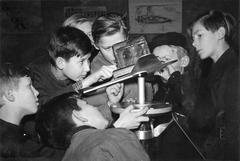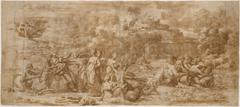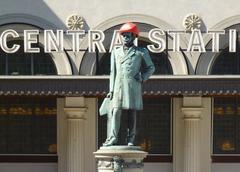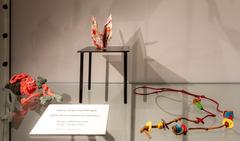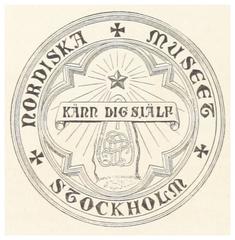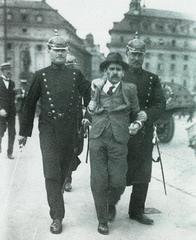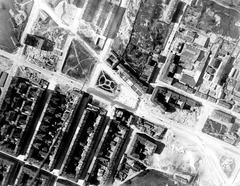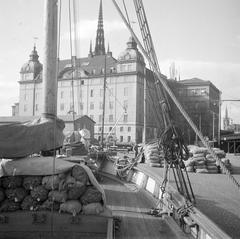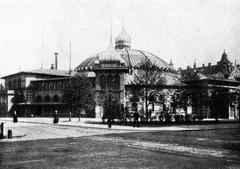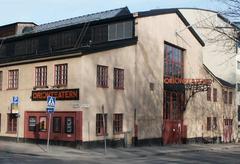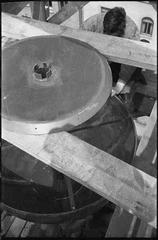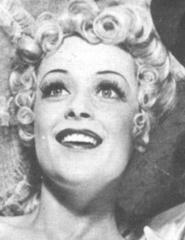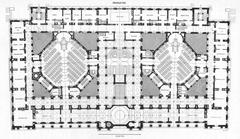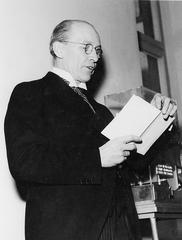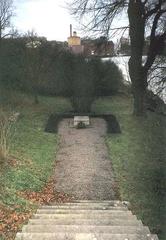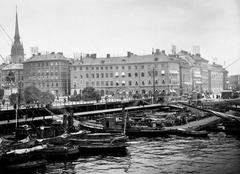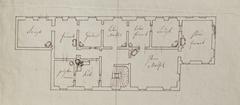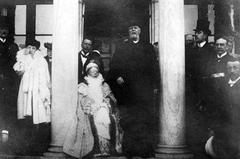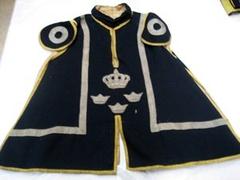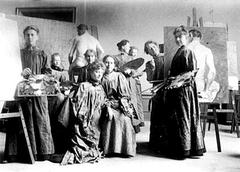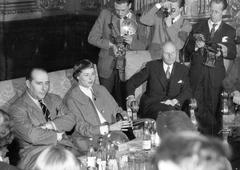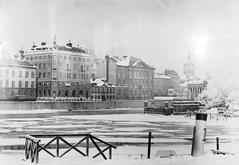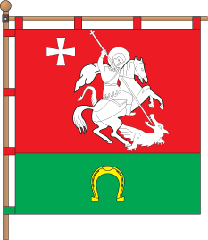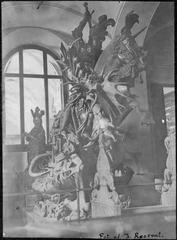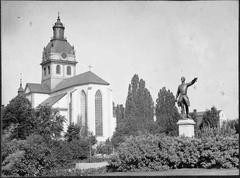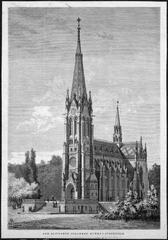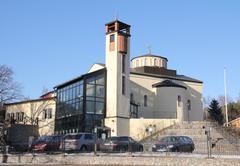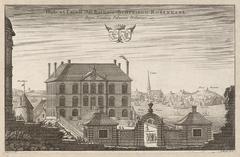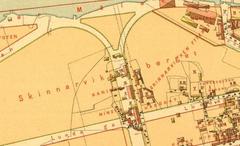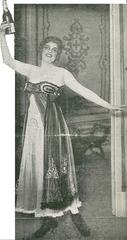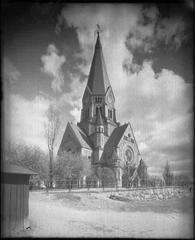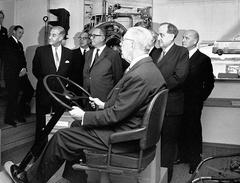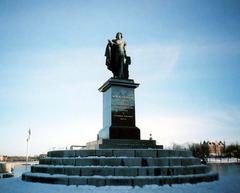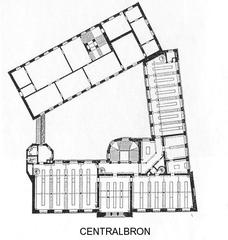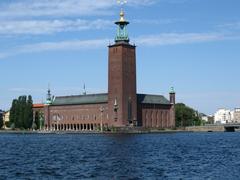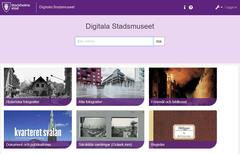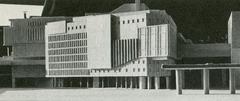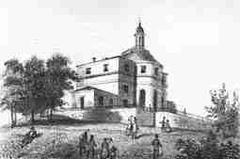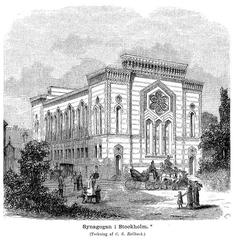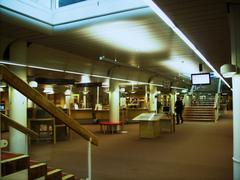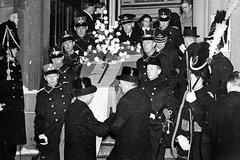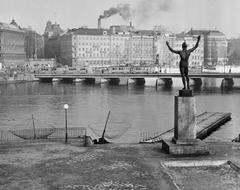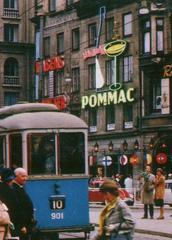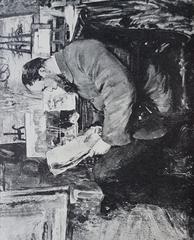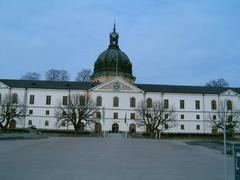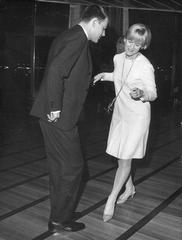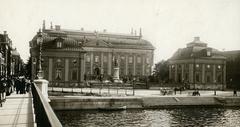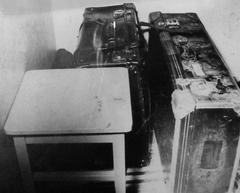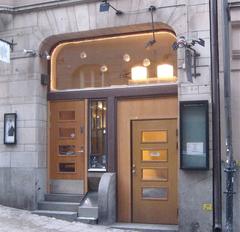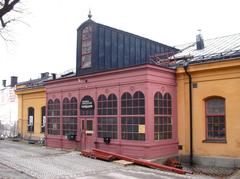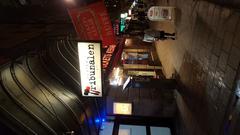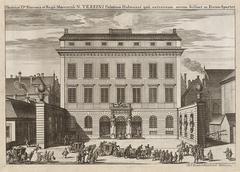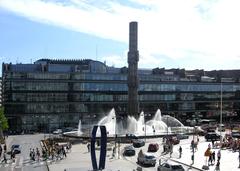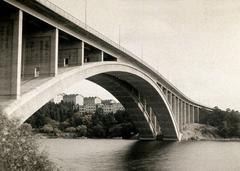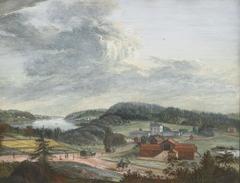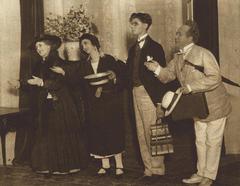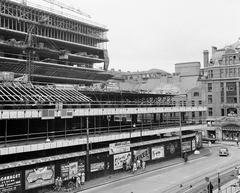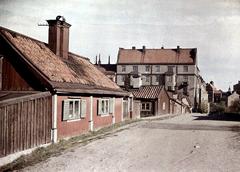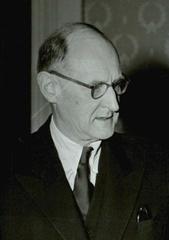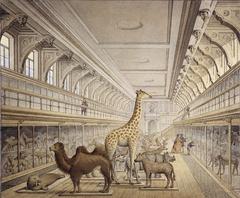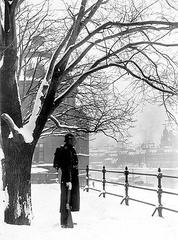Jewish Museum of Sweden: Visiting Hours, Tickets, and Visitor Information in Stockholm
Date: 15/06/2025
Introduction
The Jewish Museum of Sweden (Judiska Museet) in Stockholm stands as a vibrant testament to more than three centuries of Jewish life, culture, and history within Sweden. Located in the heart of Gamla Stan (Stockholm’s Old Town), the museum occupies Sweden’s oldest preserved synagogue, dating back to 1795. Through its thoughtfully curated exhibitions, educational programs, and restored historic setting, the museum offers an immersive exploration of Jewish resilience, contributions, and evolving identity in Swedish society. This guide provides detailed information on the museum’s history, visiting hours, ticketing, accessibility, exhibitions, travel tips, and answers to frequently asked questions, ensuring you have all you need for a meaningful visit.
Historical Background: Jewish Life in Sweden and the Museum’s Foundations
Early Jewish Presence and Legal Milestones
Jewish settlement in Sweden began in the late 17th century but was initially subject to strict regulations and religious conversion requirements. Notably, the Jewish Ordinance of 1782 marked a significant shift, granting Jews the right to form communities in select cities—including Stockholm—without converting to Christianity. This legal milestone allowed the emergence of a vibrant Jewish community and the eventual establishment of synagogues and communal institutions.
The Historic Synagogue at Själagårdsgatan 19
At the core of the museum is the historic synagogue at Själagårdsgatan 19, which served Stockholm’s Jewish community from 1795 to 1870. The building housed essential elements of communal Jewish life, including a Torah ark, bimah, ritual bath, religious school, and kosher butcher. After the community outgrew the space, it was repurposed for various uses before becoming the home of the museum in 2019. Restoration efforts have revealed rare 19th-century murals, making it a unique architectural and artistic heritage site (Jewish Heritage Europe).
The Jewish Museum’s Evolution
Founded in 1987 by Viola and Aron Neuman, the Jewish Museum originally occupied a former school building. Its relocation to the historic synagogue in Gamla Stan was both a symbolic and practical return to Jewish communal roots. The museum’s permanent and temporary exhibitions now span themes from early Jewish settlement and emancipation to the experiences of refugees during World War II and contemporary Jewish life in Sweden.
Location and Accessibility
- Address: Själagårdsgatan 19, Gamla Stan, 111 31 Stockholm
- Getting There: Easily accessible by Stockholm’s metro (Gamla Stan station) and several bus lines. Due to Gamla Stan’s narrow streets, public transport or walking is recommended.
- Accessibility: The museum is fully wheelchair accessible, with elevators, adapted facilities, and staff available to assist. Restrooms and seating areas are provided.
Visiting Hours
The museum’s opening hours are as follows (Jewish Museum of Sweden visiting hours):
- Monday: Closed
- Tuesday–Wednesday: 11:00–17:00
- Thursday: 11:00–20:00
- Friday: 11:00–16:00
- Saturday–Sunday: 11:00–17:00
Note: The museum closes on major public holidays and for special occasions (e.g., Midsummer). Always check the official museum website for the latest updates.
Ticket Information
- Adults: 100 SEK
- Seniors and Students: 80 SEK
- Children and Youth (19 and under): Free
- Free Admission: Saturdays 11:00–12:00 (“Shabbat shalom!” initiative)
Tickets can be purchased onsite or online through the museum’s official website.
- Group and School Tours: School tours (900 SEK); booked groups (1700 SEK plus entrance fees). Digital guided tours are available by arrangement at [email protected].
Exhibitions and Collections
The museum’s exhibitions encompass:
- Permanent Exhibitions: Chronicling Jewish life in Sweden from the 18th century to the present day, featuring religious artifacts, personal stories, documents, and restored synagogue interiors.
- Temporary Exhibitions: Rotating displays on topics such as antisemitism, the Holocaust, modern Jewish identity, and contemporary art.
- Multimedia Installations: Oral histories and interactive features bring personal narratives to life.
- Historic Features: The restored prayer hall and 19th-century murals provide a direct link to the community’s past.
All exhibition materials are available in Swedish and English.
Guided Tours and Educational Programs
- Guided Tours: Offered regularly in Swedish and English; private and digital tours available by prior booking ([email protected]).
- Educational Programs: Tailored for schools and groups, focusing on tolerance, diversity, and minority experiences in Sweden.
- Special Events: The museum hosts cultural festivals, lectures, commemorative events, and workshops throughout the year.
Cultural Significance and Community Engagement
Supported by the Swedish Ministry of Culture, Region Stockholm, the City of Stockholm, and private foundations, the museum is a crucial hub for dialogue on diversity, tolerance, and combating antisemitism. It collaborates with local and international partners to present exhibitions and public programs that foster cultural exchange.
Facilities and Visitor Services
- Accessibility: Full wheelchair access, with staff assistance available.
- Restrooms and Seating: Available throughout the galleries.
- Museum Shop: Offers books, Judaica, and souvenirs.
- Dining: No café onsite, but Gamla Stan offers numerous nearby restaurants, including kosher and vegetarian options.
- Photography: Allowed for personal use without flash or tripods.
Travel Tips and Nearby Attractions
- Best Times to Visit: Weekday mornings or late afternoons to avoid crowds; arrive early on Saturdays for free admission.
- Combined Visits: Explore nearby destinations such as the Royal Palace, Stockholm Cathedral, and Nobel Prize Museum.
- Travel: Use public transportation due to limited vehicle access in Gamla Stan.
Frequently Asked Questions (FAQ)
Q: What are the Jewish Museum of Sweden’s visiting hours?
A: Tuesday–Wednesday & Saturday–Sunday 11:00–17:00; Thursday 11:00–20:00; Friday 11:00–16:00; closed Mondays.
Q: How much are tickets?
A: Adults 100 SEK; seniors and students 80 SEK; children and youth under 20 enter free.
Q: Is the museum wheelchair accessible?
A: Yes, the museum offers full accessibility and staff assistance.
Q: Can I take photographs?
A: Photography is permitted for personal use without flash or tripods.
Q: Are guided tours available?
A: Yes, both in-person and digital tours can be booked in advance.
Q: Are there free entrance times?
A: Yes, Saturdays from 11:00–12:00 (“Shabbat shalom!” initiative).
Q: How do I reach the museum using public transport?
A: Take the metro to Gamla Stan station or use nearby bus lines.
Contact Information and Further Resources
- Phone: +46 8 30 15 00
- Email: [email protected]
- Official Website: https://judiskamuseet.se
- Social Media: Facebook, Instagram
Conclusion and Final Tips
The Jewish Museum of Sweden is a vital institution, preserving and celebrating Jewish heritage within the Swedish context. Its restored synagogue setting, rich collections, and active role in education and cultural dialogue make it an essential destination for anyone interested in history, culture, or contemporary social issues. With its central location in Gamla Stan, the museum is an ideal starting point for exploring Stockholm’s historic sites. For the latest on visiting hours, tickets, exhibitions, and events, always consult the official museum website.
Plan your visit today and immerse yourself in the living history, culture, and community spirit that define the Jewish Museum of Sweden.
References
- Jewish Museum of Sweden official website
- Jewish Heritage Europe
- Jewish Museum of Sweden visiting hours
- GetYourGuide: Jewish Museum Stockholm Private Tour
